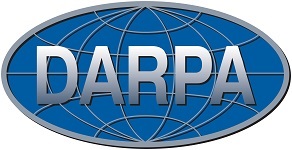For a second consecutive year, Graf Research has been invited to the Military and Aerospace Programmable Logic Devices (MAPLD) Workshop in La Jolla, California, this time to present a keynote lecture. Jonathan Graf will present a topic entitled "Measuring Trust" on May 24. Be sure to stop in and see our keynote!
——-
Measuring Trust
By Jonathan Graf
MAPLD 2018
In space and defense microelectronics research, we often define trust in a domain-specific manner: we trust our microelectronic devices when they are genuine devices that do what they are supposed to do and nothing else. Measuring whether a microelectronic device is trusted requires blending disparate contributors. In practice, however, many tend to focus on one contributor to the exclusion of others. We often look exclusively at trust assessment methods (tools, best practices, techniques) that measure attributes of systems or devices, conflating a measurement of method efficacy with a measure of trust. How to transition from metrics that measure the efficacy of a method to metrics that measure all components that contribute to trust is an ongoing topic of research, both at Graf Research and elsewhere. These trust metrics systems blend measurements of methods with the concept of an adversary. The adversary has their own methods and uses them to interact with a defender in an engagement. Modeling this engagement correctly requires knowledge not only of the strategies available to each party but also their resources, capabilities, and goals. A useful model that considers all these elements can quantitatively inform those who wish to measure whether their devices meet the above trust definition.
In this invited talk, we will construct a system of trust metrics that considers all requisite elements. It uses a quantified, cost-indexed risk function as a trust metric to describe the payoff to a defender for selecting certain sets of methods as a detection strategy. It similarly models the adversary and their payoff for selecting an exploitation strategy. The goal of each party is to maximize their payoff. We demonstrate how these two payoff metrics may be combined using game theory to select the optimal strategies for both the adversary and defender to achieve their highest payoff when considering the likely actions of the other party. This example system focuses on hardware Trojan detection. It tells the defender the optimal method of how to find Trojans. Incidentally, it also tells the adversary the optimal methods of how to exploit the system. We conclude the talk by comparing this metric to other emerging trust metrics.













